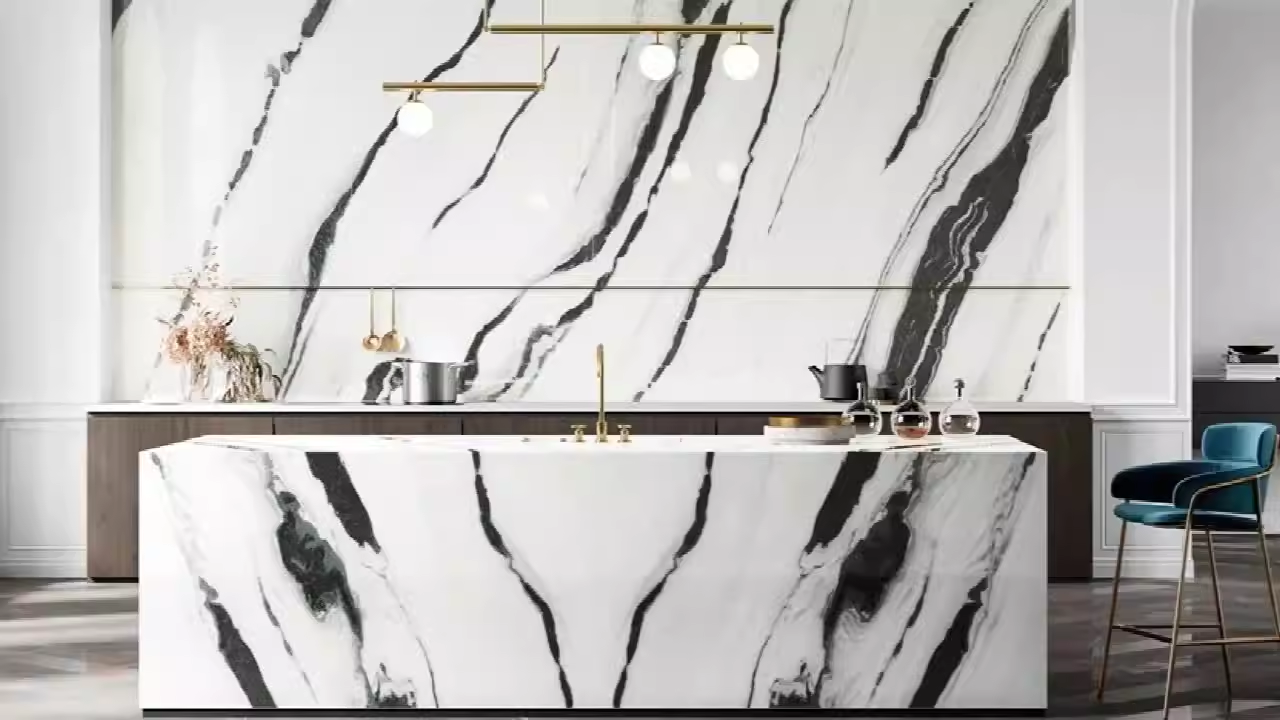Are Porcelain Slabs Worth It? Pros and Cons You Should Know
When it comes to choosing surfaces for your kitchen, bathroom, flooring, or even outdoor areas, the market offers a wide variety of materials. One option that has been gaining immense popularity over the past few years is Porcelain Slabs. Sleek, durable, and highly versatile, porcelain has become a top contender in the world of architecture and interior design. But are Porcelain Slabs really worth the investment? In this blog, we’ll explore the major pros and cons of porcelain slabs to help you make an informed decision.
What Are Porcelain Slabs?
Porcelain Slabs are large-format tiles made from refined clay and natural materials, fired at extremely high temperatures. This process makes them dense, hard, and durable. They are available in various sizes, colors, finishes, and textures—some even mimic the appearance of natural stone, wood, or concrete. These slabs are often used for kitchen countertops, wall cladding, bathroom vanities, flooring, and even outdoor spaces.
Pros of Porcelain Slabs
1. Durability and Strength
Porcelain is known for its extreme hardness and resistance to wear and tear. Porcelain Slabs are less likely to scratch, crack, or chip compared to many natural stones. They can handle heavy use, making them ideal for high-traffic areas in both residential and commercial properties.
2. Heat and Stain Resistance
One of the most appreciated features of Porcelain Slabs is their resistance to heat and stains. You can place hot pots directly on the surface without causing damage, and spills from wine, coffee, or oil can easily be wiped away without leaving permanent marks. This makes porcelain a fantastic choice for kitchen countertops and bathroom surfaces.
3. Low Maintenance
Unlike some natural stones that require sealing and special cleaners, Porcelain Slabs are non-porous and incredibly easy to maintain. They don’t absorb water, bacteria, or odors, making them hygienic and perfect for spaces that require regular cleaning.
4. Wide Range of Designs
Porcelain offers incredible flexibility in terms of design. Advanced printing technology allows manufacturers to create slabs that replicate the look of marble, granite, wood, and other materials—without the downsides of those natural surfaces. This means you can achieve a luxurious look at a more affordable cost and with better durability.
5. UV and Weather Resistance
Porcelain Slabs perform exceptionally well in outdoor settings as they are resistant to UV rays and adverse weather conditions. Their colors do not fade under sunlight, and they can withstand both hot and cold temperatures without deterioration.
6. Sustainable and Eco-Friendly
Porcelain is made from natural materials and does not emit volatile organic compounds (VOCs). It’s also 100% recyclable, which makes it a more environmentally conscious choice compared to some other surfacing options.
Cons of Porcelain Slabs
1. Cost
Although Porcelain Slabs can mimic the appearance of more expensive stones, they are still priced higher than standard ceramic tiles or laminates. Additionally, high-end finishes or unique prints can increase the cost even further. However, the longevity and low maintenance often balance out the initial expense over time.
2. Installation Complexity
Installing Porcelain Slabs requires skill and precision. Their large size makes them heavy and fragile during handling, and any mistake during installation can be costly. Hiring professionals with experience in porcelain installation is essential, which adds to the overall project cost.
3. Limited Availability in Some Markets
Although growing in popularity, Porcelain Slabs may not be as readily available in some regions compared to traditional tiles or natural stone. Custom orders might take longer and involve higher shipping costs, depending on your location.
4. Hardness May Be a Double-Edged Sword
While the durability of Porcelain Slabs is a benefit, their extreme hardness means they can be unforgiving if you drop delicate items like glassware or ceramic dishes on them—they’re likely to break instantly.
5. Less Natural Variation
Even though porcelain can replicate the look of natural stone, some people still prefer the authentic, natural variation and veining that only real marble or granite can offer. While porcelain’s patterns can be striking, they are printed and therefore somewhat repetitive.
Are Porcelain Slabs Right for You?
Choosing Porcelain Slabs ultimately depends on your specific needs, design preferences, and budget. If you’re looking for a modern, low-maintenance, highly durable surface that can withstand heat, stains, and the elements, then porcelain is an excellent option. Its sleek appearance and adaptability make it suitable for various applications, including both interiors and exteriors.
However, if you value natural variation and are willing to perform a bit more maintenance, you might still lean toward natural stone like marble or granite. Likewise, if you’re on a tight budget, you may find the cost of Porcelain Slabs slightly prohibitive.
Conclusion
Porcelain Slabs are undoubtedly a high-performance surface option that offers an ideal combination of strength, beauty, and ease of maintenance. While they come with a higher upfront cost and require skilled installation, the long-term benefits make them well worth the investment for many homeowners and commercial developers.
When you decide to explore premium porcelain solutions, working with a trusted supplier is key to ensuring quality and professional guidance. In the UAE, Al Rafahia Marbles & Granite LLC has earned a stellar reputation for offering top-grade Porcelain Slabs that meet international standards. With a commitment to excellence, innovative design solutions, and outstanding customer support, Al Rafahia is your ideal partner in turning vision into reality—whether you’re redesigning a kitchen or crafting a commercial masterpiece.





